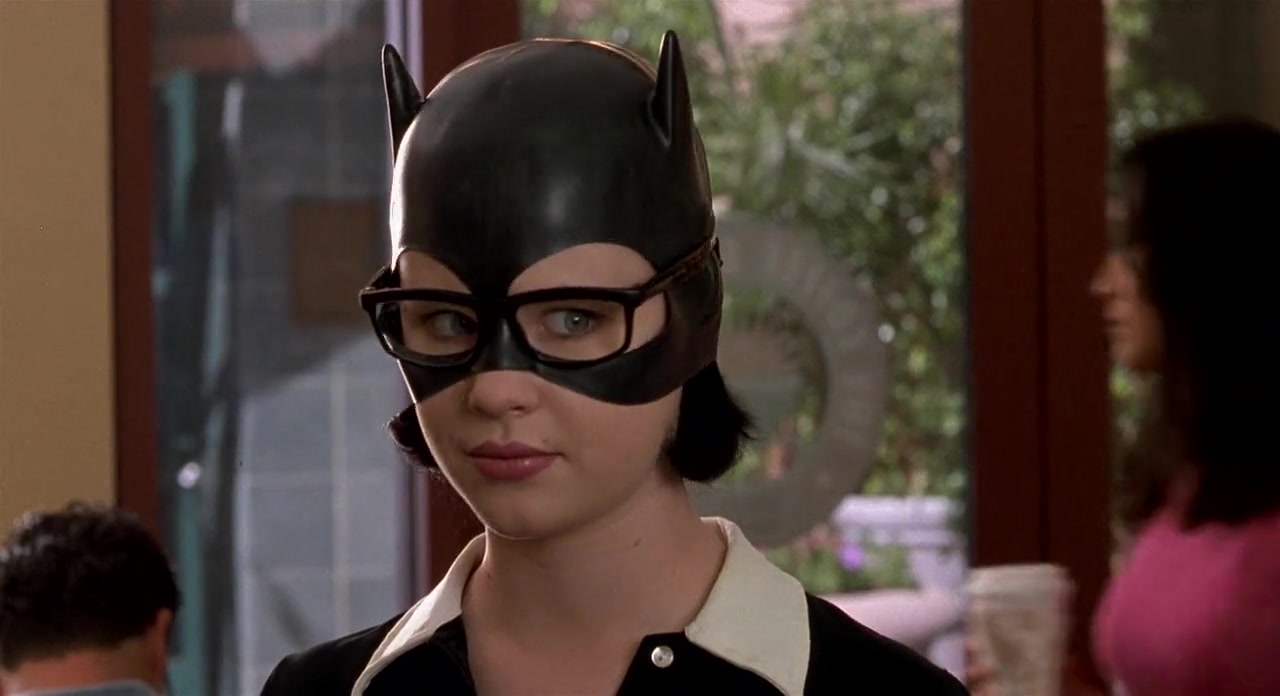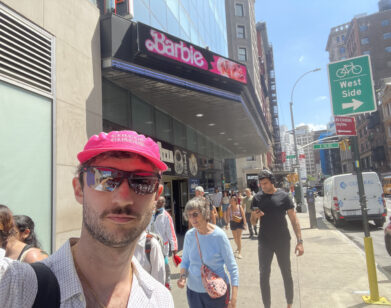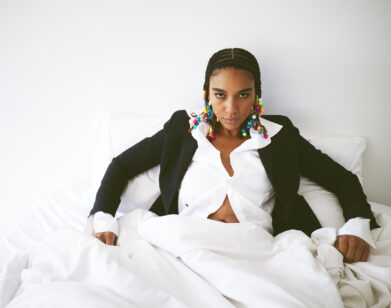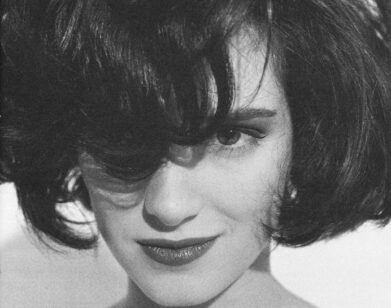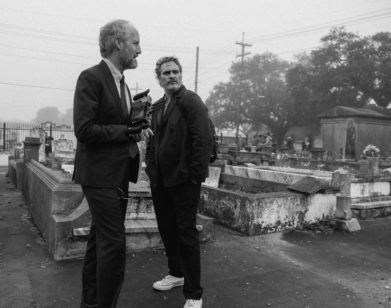The unfortunate disappearance of the sassy, cool girl
Fairuza Balk’s cutting snark in The Craft [1996]. Thora Birch’s deadpan wit in Ghost World [2001]. Julia Stiles’s burning DGAF eyes in 10 Things I Hate About You [1999]. All of these girls owned tongue-in-cheek takedowns, a sort of bitchiness abetted by a high level of intelligence. They were the smart outcast rulers of ’90s teen culture, replete with a holier-than-thou air; but this girl, this character—the sardonic, shrewd foil who dishes out insults to mask her insecurities—has gone extinct.
She died as she lived on screen: virtually ignored. In Terry Zwigoff’s Ghost World, Enid Coleslaw (Birch) is the outsider who sees through the basic, cheery characters that make up her graduating class. When one of her classmates comes up to her and Rebecca (Scarlett Johansson) after their graduation ceremony and says, “You guys, I can’t believe we made it!” Enid replies with the vocal equivalent of an eye roll: “Yeah … We graduated high school. How totally amazing.” In Darren Stein’s teen drama Jawbreaker, the “Satan in heels” lead Courtney Shayne (Rose McGowan) is seemingly always ready and armed with razor sharp one-liners.
Julie: How can you do that? Frame some guy for Liz’s murder?
Courtney: Life’s a bitch, then you die.
Julie: No, honey. You’re the bitch!
Courtney: [leans in tauntingly] Oh, so aggressive! It’s turning me on!
Despite them being called bitches, or acting “bitchy,” (“Cause I’m telling the truth, that makes me a bitch?” Claire Standish says in The Breakfast Club) the prevailing qualities of this character are a casual irreverence and an acid-tongued wit. Mostly, they’re just spillers of truth. All of these characters existed within a strict ’90s framework, often kitted out like a grunge diehard. It was Lindsey Weir in Freaks and Geeks, Susan May Pratt in Center Stage, Eliza Dushku in … just about anything. It was a time when Daria Morgendorffer and her monotone indifference were something to idolize. She beat back Lawndale High’s illiterati—specifically her airhead sister, Quinn—with stinging comments designed more to showcase her outsiderness than to maim any target. When Quinn, for example, says she’s found a job in the mall’s pet store, Daria fires back, “Are you sure it’s a job? Maybe they’re just trying to find you a good home.”
Mean Girls [2005], the Last Teen Film® to really make a dent in the bumper of culture, boasted the character of Janis Ian. “Nice wig Janis, what’s it made of?” a bully taunts. “Your mom’s chest hair!” is her reply.
After that, the sassy, cool girl in ’90s teen film bit the dust. Now we’re left to pick over bones. “Like most alternative culture, it seems as if that sassy, cool girl has been [repurposed],” says Jawbreaker director Darren Stein. “They’re no longer relegated to the sidelines. The sassy, cool girl has figured out how to do it for herself and she’s moved to TV—think Lena Dunham and Mindy Kaling. Or they’ve become internet famous with their Twitter followings and Instagram followings. They’ve got podcasts or they’ve become TV writers. Some of the coolest girls I know today write on TV shows.”
In 2017, we have Veronica in Riverdale. Occasionally, her dialogue consists of cutting remarks. However, the show is a neon-tinged throwback, so referential of teen fare that preceded it (each episode has at least one nod and a wink to films like Heathers or early ’00s stars like “Justin Gingerlake”) that it’s hardly a notch on the teen bitch continuum. One could argue that a character in Lena Dunham’s Girls or on Abbi Jacobson and Ilana Glazer’s Broad City has been passed the sass torch. After all, its respective creators likely grew up on a diet of these films. Sarky teen archetypes have been woven into the fabric of their twenty-something narratives, transposed to adult characters. As for teens, they’ve been left in the lurch.
Today, there seems to be a heart-on-sleeve self-expression from teenagers in film. In the cyber world of live-streamed Instagram video, kids are more honest and open about their feelings. The Edge of Seventeen [2016], director Kelly Fremon Craig’s sleeper hit about a young girl (Hailee Steinfeld) who accidentally texts her crush that she’d like to hook up, is a paragon of this. To admit to something so directly—that you had a crush on someone—was basically sacrilege until the advent of navel-gazing on social media. Perhaps the death of the sassy, cool girl is partially due to the dissolution of cliques and dismantling of subcultures. Or, at least, that’s the case made by filmmaker Charlie Lyne, who created 2014 documentary Beyond Clueless, which examined the tropes of teen films of that era.
“There’s that very emblematic scene in the first 21 Jump Street where [the two main characters] prep themselves to arrive at school while reeling off all the cliques that they’re expecting to see,” says Lyne over the phone. “Then they get there and everyone is between cliques and [there are] sort of mutable cliques that can’t really easily be defined or understood by people using a kind of ‘80s or ‘90s framework.”
“Disaffected youth doesn’t seem to be as underground as it once was,” adds Stein. “Now that our lives are lived in the flesh and in this dual online dimension, we’re all sharing and spying on each other. It’s like no one is truly alone anymore and hasn’t that sassy cool girl always been kind of removed? Above the fray? Sprung from some kind of otherness?”
Either somewhere along the line sarcasm has died off in America, maligned to a humorless post-Trump world, or Hollywood has no more room for these kinds of characters. Maybe it’s the comic book blockbuster that set teen films in its crosshairs?
“My hunch was always that what kind of killed off that ‘90s, early 2000s wave was the complete absorption of these characters into blockbuster cinema,” continues Lyne. “That required them to become identikit, everyman characters and if there were other tiny characters in the movie they would just act as accessories for some larger, blockbuster plot. So now that it feels like it’s swung back the other way, and action heroes are old again, that might leave room for these characters to kind of reassert themselves back in their natural habitat.”
“I think they’re still out there but not as much on film—more online, podcasts, TV shows,” adds Stein. “Also, there just aren’t as many youth culture movies being made in Hollywood. The Craft, Ghost World and Donnie Darko [1988] were all made by studios or indie divisions of studios and marketed to a mass audience and released all over the world. These sardonic cool girls are in fringier movies. Greta Gerwig is that girl and played one of the best versions of that trope in 20th Century Women [2016], which I thought was one of the best films of last year. A lot of people haven’t seen it though. There’s just so much content to sift through that gems like these get lost.”
Coincidentally, the careers of many of the actors who played these iconic pseudo-bitchy roles have essentially dried up. Ghost World was arguably Thora Birch’s last memorable role—she was fired from an Off-Broadway performance of Dracula. As reported by the New York Times, it was all because “her father, Jack, had threatened another actor during a rehearsal on Thursday night.” Rachel True, a.k.a. Rochelle from The Craft, now gives tarot readings in L.A.’s Echo Park. Julia Stiles and Eliza Dushku are still acting, though they have been sidelined to foreign TV series or middling bit parts.
So with both the actors and the characters out of commission, it begs the question, is the sassy teen girl gone forever? Will she ever make a comeback? Or is she just busy giving tarot readings in an L.A. public park? Saoirse Ronan’s character in Gerwig’s Lady Bird was a promising return to form for the boldfaced teenager. The film’s performance at the box office only serves to underscore the public desire for a s-t-a-u-n-c-h female character. While there is no definitive answer for her permanent whereabouts, the clangers uttered by these sassy, strong women of yore continue to reverberate in pop culture’s hallowed halls and, let’s face it, will likely be rejigged for next year’s TV reboot of Heathers. To that I say: Fuck me gently with a chainsaw.

